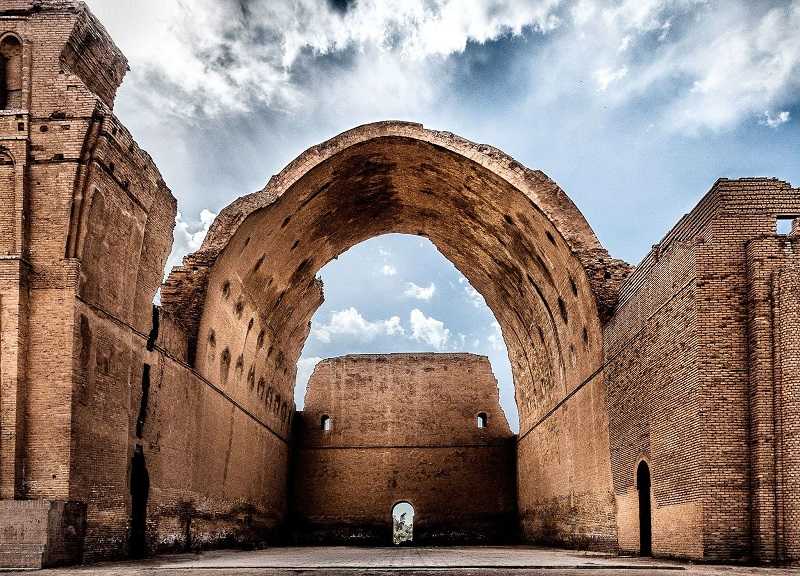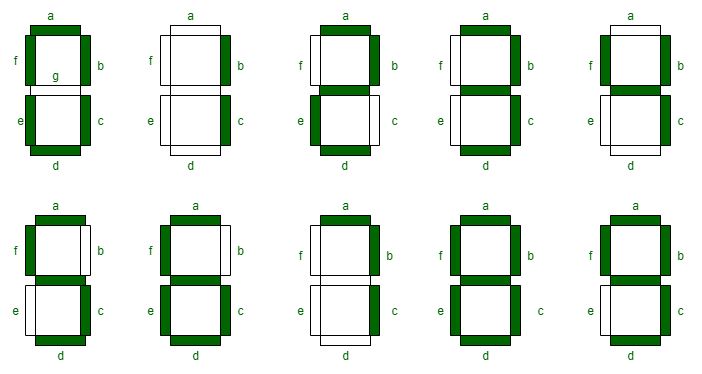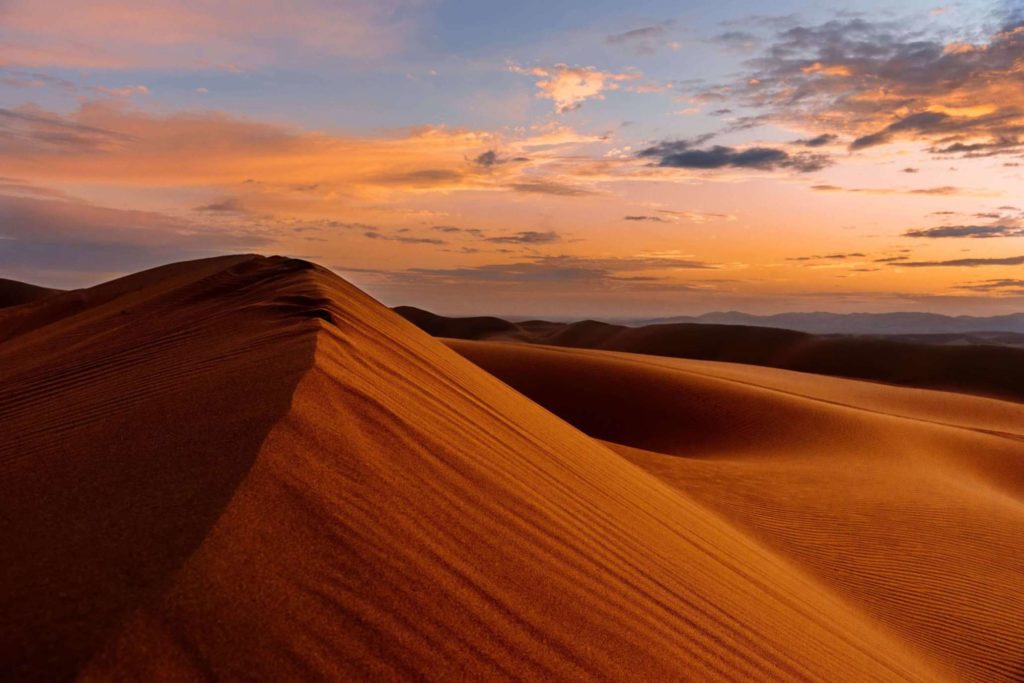
In October 2022 I wrote an article entitled Freedom, China and Creativity [1] on an issue that has long been raised, and is still being raised: the ‘inevitability’ of the fall of Western civilization, that it has nothing to give to humanity. The theme was predicted by many, each providing their own reasons and alternatives, among whom the ‘Islamic’ thinker Sayyid Quṭb. The latter differed from those who preceded him in his belief that the alternative was Islamic civilization, a civilisation which, one day, will replace Western civilisation, and the American civilisation in particular.
WHAT, THEN, DO WE mean by ‘civilization’? Civilization is represented, geographically speaking, by a complex human society that demonstrates characteristics protecting it from stagnation, and impelling it towards cultural, industrial and commercial development.
Civilizations came to form with the early beginnings of urbanisation, where, over time, there developed a common language and other means of communication, a shared infrastructure and administration, along with the rest of the institutions of a state. It developed until reaching a system close to ideal, worthy of being taken by others as a role model.
Turning now to Islam from its beginnings to the present day, and looking over a period of 1,400 years, we do not find any of these definitions of civilization that can be applied to it, nor to those who believe in it as a faith, nor to its cities and urban areas – with the exception of short periods in a specific geographical area.
Whoever believes or tries to make us and others believe that there is an ‘Islamic civilization’ will quickly discover the error of his belief, for there was indeed once a civilization in the Dār al-Islām but it was not ‘Islamic’, in the sense that that religion was not the motivating impulse behind it.
The evidence for this is that that this ‘civilization’ disappeared along with the disappearance of the factors that created it, such as the ethnic diversity of its constituents and the sheer size of the contributions of followers of other religions – Zoroastrians, Christians and Jews in particular – in translating and transmitting science.
These worked in an atmosphere characterized by considerable freedom, before their actions came to be accused as ‘un-Islamic’ and they were removed from the scene, their scholars eliminated. The reason for this is that the Islamic religion is, in its essence, an ‘anti-civilization’. Mankind, according to the various sacred texts, and explicitly in the Qur’ān, was created in order to worship God in this mortal world below, and he is to perform many acts of worship in order to attain the state of the everlasting eternal abode. How can a nation that, from age nine to a ripe old age, worships all day long and lives its entire life for the sake of the afterlife think of, or even allow to enter into its mind to, building a civilisation? The word ‘civilisation’ is actually a relatively modern term, in much the same way that the word ‘state’ is – the terms are not met with in ancient books.
This ‘civilization’ disappeared along with the disappearance of the factors that created it
Muslims also strongly believe that nothing can happen to a Muslim except that which God has ‘written’ for him. To resist one’s fate, or take precautions against what is to come, is for the most part a useless exercise, and it was this belief that urged him to surrender to his situation and prevented him from attempting to progress. Things thus became more confusing for Muslims, or rather the thinkers among them, after civilization became a global phenomenon, instead of being confined to a specific geographical area. If the United States were to be wiped off the face of the earth, most of the elements in this contemporary civilization would remain just as they are even in many other regions, in contrast to the Babylonian, Egyptian, or Persian civilizations, among others, which were localised in their existence and their influence, and generally confined to a single language.
The Arabs, and subsequently the Muslims, did not have any tendency to write things down, or record events for obvious reasons: either due to the absence of writing materials such as ink and paper, or the lack of a building or a place in which to preserve these writings. They were constantly on the move, in a state of fight and flight, raiding and decamping. Consequently poetry was for centuries the means of record and vessel of memory, and so it is not surprising that Arab Muslims were the last nation to publish a novel. That was in the year 1913 when the novel Zeinab by Muhammad Hussein Haikal was published.[2] Likewise, the events of Islamic history are not known with any degree of accuracy, due to the absence of sources that can be relied or depended upon. Even the first copies of the Qur’ān that the Caliph ‘Uthmān is said to have collected some 1,400 years ago, the copies sent out to various countries were all of them subsequently lost, and today we have only incomplete fragments left from those copies of the Qur’ān, dispersed between Cairo, Birmingham, Istanbul, Tashkent and elsewhere!
One of the laughable paradoxes is that one sign of modern civilization is the ability to represent numbers, in that the whole world has abandoned its old way of writing these, and adopted ‘Arabic numerals’, based on the use of the ‘7-segment display’ dot system for the numbers 0-9. Countries such as Japan and China have not hesitated to adopt this system for its being more practical. Yet the Arabs disagreed with the rest of the world in that it had adopted the Indian numbers but represented zero as a dot. This has created an obstacle to progress in many sciences since it is not a simple matter to integrate the figures into programmes using the ‘7-segment display’ dot system.
If we contemplate the nature and the conditions of life today in the Arabian Peninsula, we will find that for the most part these do not differ substantially from what they were thousands of years ago, particularly if we subtract the tools, machines and manifestations of civilisation such as the automobiles, buildings, schools, stadiums and luxurious residences scattered here and there – all of them imported via oil money. The region still retains its general monotony and lowly simplicity to the point of rough and ready primitiveness. The life of solitude and nomadism that on the one hand characterized the life of the Arab, and the monotony of the life on the other hand of the urbanised Arabs, the millennia of its dry environment from the scarcity of water, the lack of resources and materials, the lack of brilliant colours and shades, all of this has in one way or another affected its behaviour, its food, its drink, its housing and various other aspects of life – whether in terms of making a living or its recreation activities.
The single-stringed rebāb instrument is the only musical instrument that the region has known since ancient times, and its orphaned string is still in use today – consistent with the lack of sound expected in a desert environment, along with the primitive tambourine.
In this harsh, parched environment we find, for example, that death does not receive the attention it usually receives in other places. The rituals of condolence are not marked by the manifestations of solemnity and reverence that all the neighbouring regions and ancient cities, with their rivers and banks demonstrated. The sudden death in a caravan did not mean much, since the body was merely pushed into a simple and shallow grave in the middle of the sands, while the caravan train moved on in its constant search for water and pasture or in search of conquest or trade. Life simply returned to its previous monotony. All this is due to the poverty of the environment and the conditions of a time and place that could not permit luxury or delay. There are no special clothes for a period of mourning and no talk of the passing of a week, a month or a year following the death, as is the case now in many Islamic cities lying outside of the Peninsula.
If we examine religious teachings in general, we will find that they are merely a reflection of the environment from which they emerged
Islam frowns on drawing, entertainment, music, sculpture and theatrical representation, and the poverty of its founding environment contributed to consolidating this prohibition, eliminating any civilized progress in these fields. It is therefore it not surprising to see the backwardness of Muslim Arabs in all fields of the arts, literature and culture.
And if we examine religious teachings in general, we will find that they are merely a reflection of the environment from which they emerged, and have remained the same in their original homeland. As a consequence changes occurred only in the new cities that fell under the rule of Islam.
We also find in Islam texts that actively impede the process of civilization or the attainment and continuity of it, and these texts are related to a hierarchical structure of society. There are those who still believe today that authority to rule can only be invested in those who can trace their descendants back to the Messenger Muḥammad, and this is what ISIS and others have tried to exploit. Similarly, the texts of the Qur’ān, being revealed directly from Almighty God and thus incapable of change or alteration, changed or altered, as Muslims would have you believe, stipulate the existence of a class of free people and another of slaves, each class with its own set of rulings and laws to govern its actions. This, amongst other things, generally prompted Muslims to isolate themselves for fear of being influenced by the civilizations and ideas of others.
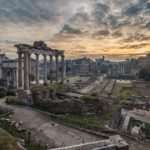
Suggested Reading
One cannot deny the value of the short period when sciences advanced in the ‘civilization of Dār al-Islām’ and its positive influence on western civilization. However, since that day Muslims have failed to preserve their civilization. This may be understandable as far as it goes, but to a greater extent, and tragically, they failed to benefit from the civilizations of others, out of fear for its supposed negative impact on them and on their beliefs.
Every civilization needs to accumulate knowledge, but Islam, the Arabs and their way of life, have never conformed to this. Moreover, the civilization of Dār al-Islām in the opinion of Muḥammad al-Sanduq,[3] cannot possibly return, in the same way that one cannot resurrect the dead. The attempts we see here and there seen to rise and advance after almost a thousand years of stagnation and stagnation, have been characterized by localism with all its consequent obstacles. Civilizational renaissance requires that there be a simultaneous link between a social renaissance and an urban and institutional renaissance. This interrelationship between social and institutional development constitutes a very complex task requiring an extended period of stability and harmony.
There is thus no room for the impermeability of the ideas and opinions of totalitarian thought, contemporary Islamism included, and its expectation of the fall of the West to be replaced by a comprehensive global Islamic renaissance that will restore heaven’s authority over earth, without a logically or scientifically worked out explanation to justify this expectation of a fall.
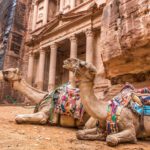
Suggested Reading
This expectation contrasts starkly with the lack in Arab and Islamic societies of the most basic necessities to enable self-reliance in any vital field, and a complete inability to confront the multiplicity of contemporary challenges.
Also contributing to the problem is the Islamic system of inheritance which obliges heirs to immediately divide up the estate of the legacy, including selling off factories, shops and real estate, and distribute their sale price to the heirs. This leads to the dispersal of the capital, and impedes the emergence of large commercial and industrial households, with its negative civilisational influence.
We might add that western civilization, which took the path to globalisation, did not claim to be ideal and was simply content with being international and the most efficient in facing existential challenges. It thus became a role model, especially since it never made claims to absolute unchangeability and stability, given that everything in it is subject to change precisely in order to meet these challenges. This is the logic of survival, and herein lies the essence of its difference from systems of all-embracing beliefs that cannot evolve, systems such as Islam!
[1] A. al-Sarraf, الحرية والصين والإبداع Al-Qabas, October 4, 2022.
[2] Muhammad Husayn Haykal’s novel Zeinab: Country Scenes and Morals is considered by many to be the ‘first’ Arabic novel. The book depicts life in the Egyptian countryside and delves into the traditional romantic and marital relationships between men and women and the interactions between the labouring cotton workers and the plantation owner classes. Significantly, Haykal had spent considerable time in France where he wrote the novel. In the first edition, the author chose the pseudonym Fallāḥ Maṣrī (‘An Egyptian Peasant#), which indicates the lack of prestige attached to the genre at the time of his writing.
[3] See Almuṣlih article: Is western civilisation collapsing?
“Mankind stands today on the brink of the abyss … This is very clear in the western world, which no longer has anything in the way of ‘values’ to gift humanity”
Sayyid Qutb, on his return from America, 1952
